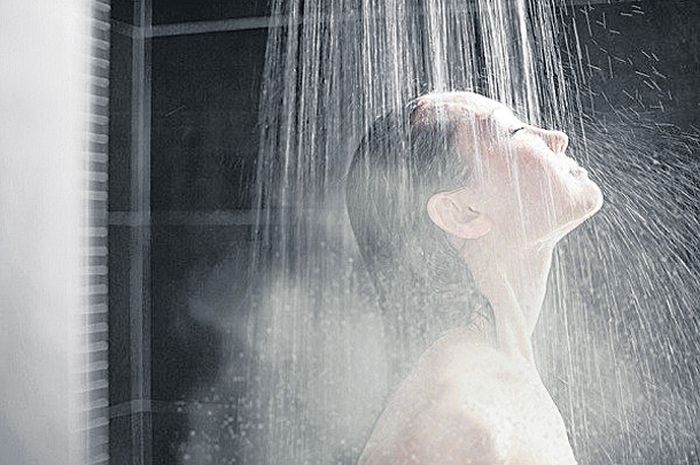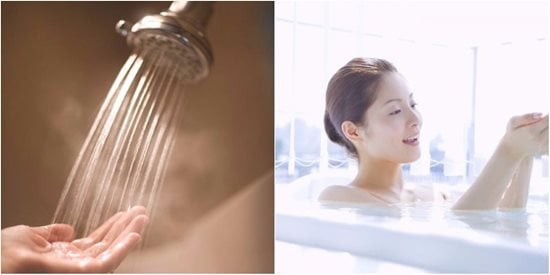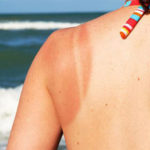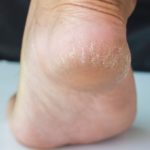How often should you take a bath in cold winter temperatures?
With the low temperatures of winter, taking a bath becomes a challenge for those without heating, making them feel like they’re facing a difficult challenge. However, there’s a group of people who insist on bathing every day, unaware that this can have unforeseen consequences.
Taking too many showers in cold weather can cause dry and cracked skin, leading to itching. Using too much shower gel can also cause the normal keratinocytes on the body to slough off, thinning the protective oily film and damaging the skin barrier. This can result in dry and itchy skin.

For the elderly, controlling the frequency of bathing is very important, especially when the body and organs undergo degenerative changes. The aging process not only changes the function of sweat glands but also reduces the function of sebaceous glands, leading to dry and flaky skin. Therefore, it is recommended to bathe not too often, about 1-2 times per week during winter, but it can be adjusted depending on the environment.
Young people may enjoy taking a relaxing bath, but for the elderly, especially those who may be frail, this may require assistance from family members. In addition, bath safety is also an important issue, so both the elderly and their families should pay attention to avoid any unwanted accidents.
Drink a little water half an hour before bathing and prepare a small chair.
The elderly need to perform two important preparation steps before starting the bathing process. First, they should drink a small amount of filtered water, usually about 200ml to 300ml. This action aims to prevent sweating and skin expansion during the bath. Providing additional blood supply helps the elderly go through the bathing experience more comfortably while maintaining their health.
In addition, preparing a small long chair is important, especially for those who need to take a long bath. This chair allows them to sit and rest for a while when they need to scrub their body, saving energy and avoiding hazards such as slipping on a wet surface.

Control the temperature of the bathwater, usually 37°C~40°C.
Controlling the temperature of the bathwater is an important factor to ensure comfort and safety during bathing, usually around 37°C to 40°C.
Some young people have a habit of choosing cold water in the hope of “strengthening their bodies”. Although this can help improve the stress response of the nervous system and enhance the elasticity of blood vessels, for the elderly, it should be noted that their internal organs are declining and this habit may cause health issues such as catching a cold and having a fever due to catching a cold.
The appropriate bathing temperature for the elderly is warm water, around 37°C to 40°C. Regular use of warm water not only helps exfoliate dead skin cells but also brings comfort to bathers. However, it is important to avoid hot water, as sudden exposure to hot water can increase heart rate and blood pressure, posing a risk to those with heart and brain problems.
Avoid choosing alkaline shower gels
Another note is to avoid choosing alkaline shower gels because alkaline chemicals can irritate the skin, weaken the skin’s natural protection, and lead to issues such as inflammation and itching. For those with dry skin, it is best to only bathe with clean water to avoid further drying out the skin.
Taking too many showers in cold weather can cause your skin to become dry and itchy. It can also lead to a thinning of the protective oily film on your skin, damaging the skin barrier. This is further exacerbated by the use of too much shower gel, which can cause normal keratinocytes to slough off.
For the elderly, controlling the frequency of bathing is crucial due to degenerative changes in their bodies and organs. The aging process affects the function of sweat glands and reduces the activity of sebaceous glands, leading to dry and flaky skin. Therefore, bathing once or twice a week is generally recommended, but it can be adjusted depending on their environment and health conditions.
Yes, there are two important steps. Firstly, drinking a small amount of water (200-300ml) before bathing can prevent sweating and skin expansion during the bath, making the experience more comfortable. Secondly, preparing a small long chair is beneficial, especially for those taking longer baths, as it provides a resting place and helps avoid hazards like slipping.
The bathwater temperature should generally be controlled between 37°C and 40°C. This ensures comfort and safety during bathing. While young people may opt for colder water, elderly individuals should avoid it as it can lead to health issues like catching a cold or fever. Instead, warm water is recommended for them as it helps exfoliate dead skin cells and provides a comfortable bathing experience.
Alkaline-based shower gels should be avoided as they can irritate the skin and weaken its natural protection. This can lead to issues such as inflammation and itching. For those with dry skin, it is best to bathe with clean water only to prevent further drying.


































